Category: The Criterion Collection
My neverending quest to watch all of the Criterion Collection films.
A part of this viewing list: Criterion Collection Spine #67: Jean Cocteau’s The Blood of A Poet.
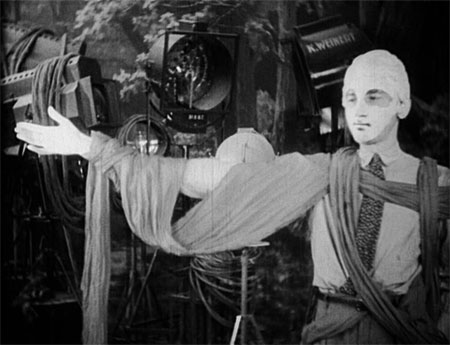
At first, this film seemed impenetrable to me. It only clocks in at 50 minutes, but the film is so filled with a need for interpretation that “pregnant” doesn’t even begin to describe it. Jean Cocteau explicitly states that the film is an allegory [or several of them] about the the meaning of art both timelessly and in the age of mechanical reproduction. I’ve very deliberately not read anything about this film [I will once I’ve finished this review, youbetcha] but I suspect that Cocteau was wrestling with his own artistic thought-demons and upon completion, he decided to express them personally, and ultimately fatalistically in this film.
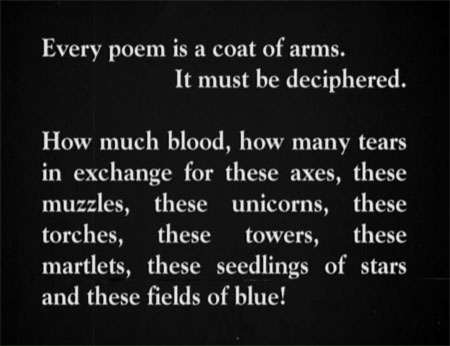
A few intertitles set the stage early on, as an artist is working on a drawing of a statue in his room. The mouth of the drawing comes to life and ends up getting attached to his hand and possessing it. It demands air, makes out with him, fondles his body and probably gives him a blowjob [a cut makes this part merely implied, at least to me]. Eventually the artist/poet ends up going through the looking-glass and into his own [and since he stands for Cocteau, Cocteau’s] mind. His mind happens to be a hotel hallway and as he peeks through the keyholes he glimpses stylized and disturbing things.
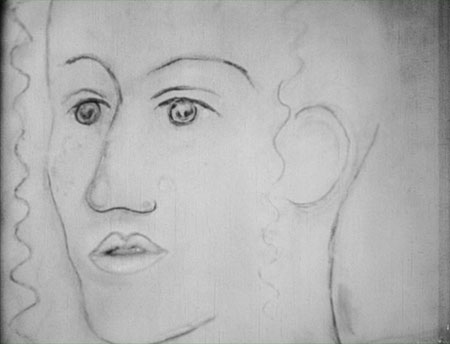
The film is quite violent, much of which is expressed with the characteristic Cocteau inventiveness. He was certainly a special effects genius. Since much of this violence appears to be an internalized manifestation of the artist’s mind, it shouldn’t be surprising that there is an equal amount of deviant sexual behavior as well, a child dressed in bells is whipped, an opium den is viewed in silhouette, a hermaphrodite gives a peep-show, not to mention the aforementioned hand/blowjob.
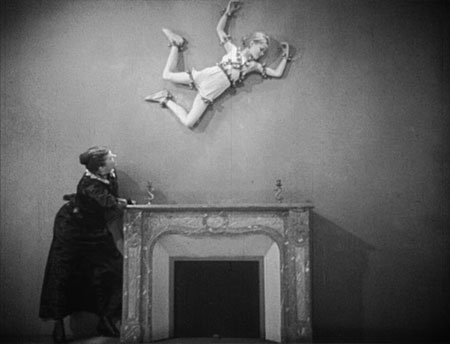
The statue’s control of the artist/poet suggests that it represents a Muse, but a renegade one who doesn’t play by the rules. She is out to teach a lesson; though art may possess and provide grandiose and wonderful and world-changing possibility to the artist, something of extreme solemnity; to others it will likely be just frivolous entertainment. And, ultimately, the importance of the art will not matter, it will be destroyed, ignored, disintegrated, or forgotten. Cocteau even indicates that immortality is not to be desired… “the mortal tedium of immortality.”
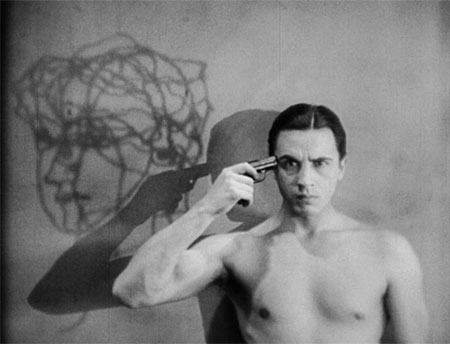
Effectually, the film is an attempt to render poetic words unto images, and to me it seems to be more document than fable, Cocteau offers no easy solutions. Especially since the artist/poet commits suicide twice during the film. Stars, wireframes, passages, voyeuristic glory everlasting, denial, larceny and powerlessness all intertwine to present a two-fold meaning [at least] for the Blood of a Poet. The blood is his art, and art demands a poet’s blood.
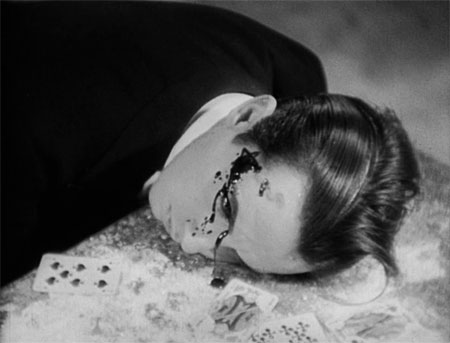
• Criterion Essay by Jean Cocteau.
• Brief review at Netcomuk [and much more Cocteau].
• Senses of Cinema review.
• MovieMartyr review.
• YouTube clip of a good trick shot.